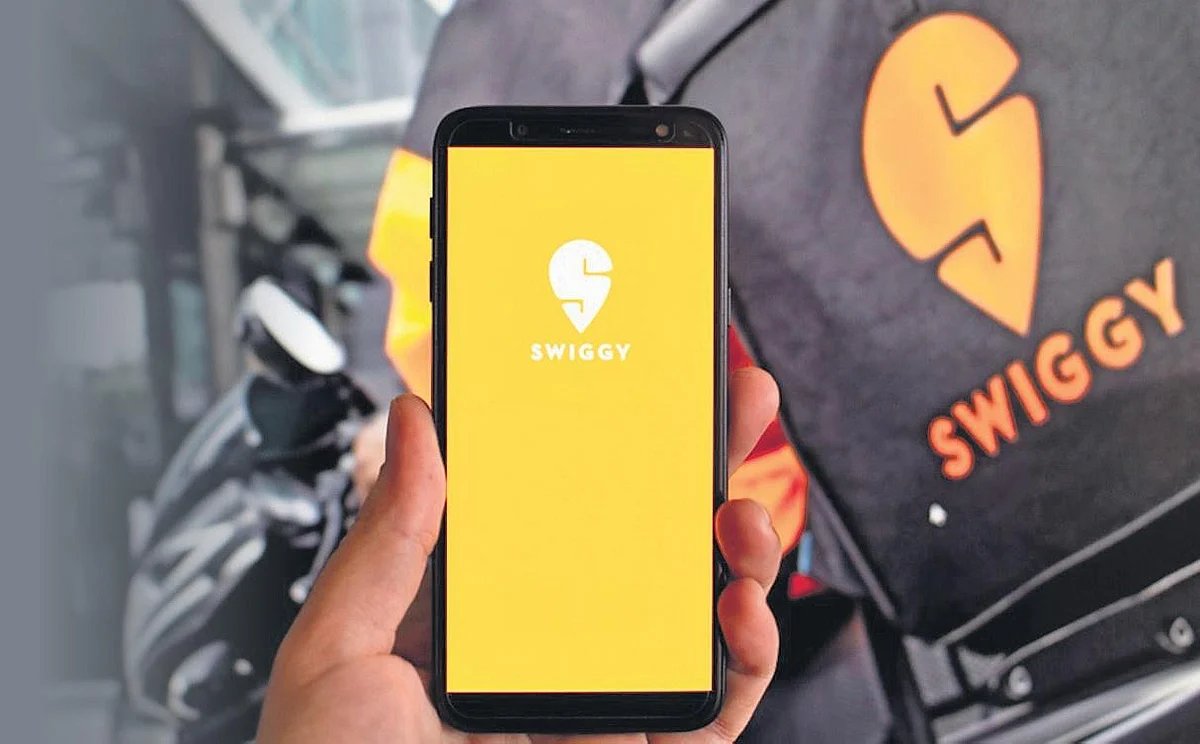Ride & Mobility
Waymo’s Dallas Expansion and the Future of Ride-Hailing

The autonomous vehicle (AV) industry is at a pivotal inflection point, driven by advancements in AI, regulatory progress, and the urgent need for sustainable urban mobility. At the forefront of this revolution is Waymo, Alphabet’s self-driving subsidiary, which has positioned itself as a leader in deploying scalable, safe, and profitable robotaxi services. Its recent partnership with Avis Budget Group to expand into Dallas in 2026 represents a strategic masterstroke, blending operational efficiency with financial pragmatism. For early-stage investors, this collaboration offers a lens into the evolving dynamics of the AV sector—and the critical questions they must ask before allocating capital.
Strategic Implications: Avis as a Catalyst for Scalability
Waymo’s Dallas expansion marks a departure from its Austin model, where robotaxis were accessed via the Uber app. Instead, Dallas will feature a standalone Waymo app, emphasizing direct customer engagement. This shift underscores Waymo’s ambition to build a self-sustaining brand in autonomous mobility, while Avis’s role as a fleet operator ensures operational rigor.
Avis, long a traditional rental car company, is transforming into a mobility infrastructure provider. By managing Dallas’s vehicle readiness, maintenance, and depot operations, Avis gains a foothold in the AV ecosystem without bearing the high costs of hardware development. For Waymo, this partnership reduces capital intensity, allowing it to focus on software and customer experience. The multi-year agreement also aligns with Avis’s broader strategy to diversify revenue streams, mitigating risks from declining rental car demand.
Critically, this model could serve as a blueprint for other AV startups. By outsourcing fleet logistics to established operators, companies can accelerate deployment while minimizing upfront investment. Investors should note that Avis’s experience in Phoenix—a decade-long partnership with Waymo—has already proven the viability of this approach.
Financial Considerations: Balancing Costs and Growth
While specific financial terms of the Dallas partnership remain undisclosed, Waymo’s broader financial health provides clarity. Backed by Alphabet, Waymo has raised $11.1 billion since 2020 and operates 1,500+ autonomous vehicles, delivering 250,000+ paid rides weekly. Its valuation of over $45 billion reflects confidence in its technology and execution.
However, challenges persist. Each Waymo vehicle costs $175,000, with autonomous hardware alone priced at $100,000. Rides are 30–40% more expensive than Uber or Lyft, raising questions about profitability. Yet, scalability is key. By 2026, Waymo plans to expand to 3,500 vehicles, with revenue projected to jump from $125 million in 2024 to $1.3 billion by 2027. The Dallas-Avis partnership will be critical to achieving this, as Avis’s infrastructure reduces per-unit maintenance costs and ensures vehicle availability.
Competitive Landscape: Navigating the Robotaxi Arms Race
Waymo’s expansion to Dallas places it in direct competition with Tesla, Amazon, and Uber. Tesla’s limited robotaxi service in Austin and Amazon’s Zoox project in Las Vegas highlight the sector’s cutthroat nature. However, Waymo’s first-mover advantage—operating the only paid driverless taxis in the U.S. at scale—gives it an edge.
Avis’s involvement also differentiates Waymo. Unlike Tesla’s vertically integrated model, Waymo’s collaboration with Avis mirrors traditional ride-hailing’s fleet management strategies, ensuring adaptability. For investors, this hybrid approach balances innovation with operational stability, a crucial factor in a sector prone to technological and regulatory volatility.
Investment Thesis: Opportunities and Risks
For early-stage investors, the Dallas-Avis partnership presents a compelling case. Key opportunities include:
1. Scalability: Avis’s infrastructure enables rapid expansion into new markets.
2. Diversification: Avis’s transition to mobility services reduces reliance on volatile rental car demand.
3. Regulatory Trust: Waymo’s safety record (88% fewer property damage claims than human drivers) builds public and regulatory confidence.
Risks, however, cannot be ignored. High vehicle costs, pricing pressures, and competition from tech giants like Tesla pose challenges. Additionally, the AV industry’s projected growth from $22.6 billion in 2024 to $222.8 billion by 2033 hinges on regulatory approvals and consumer adoption—variables beyond Waymo’s control.
Conclusion: A Strategic Bet for the Future
The Waymo-Avis partnership in Dallas is more than a regional expansion—it’s a microcosm of the AV industry’s future. For investors, this collaboration highlights the importance of strategic alliances in reducing capital intensity and accelerating deployment. While risks remain, Waymo’s financial backing, Avis’s operational expertise, and the sector’s long-term growth trajectory make this a compelling opportunity for those willing to bet on the autonomous mobility revolution.
Investment Advice: Early-stage investors should consider allocating capital to Waymo’s ecosystem, particularly Avis’s evolving role in fleet management. Diversifying across AV infrastructure providers and technology leaders will mitigate sector-specific risks while capturing growth in a market poised for disruption. As Dallas launches in 2026, watch for metrics on ride volume, cost per mile, and customer retention to gauge the partnership’s success—and the broader viability of robotaxis in urban mobility.
Ride & Mobility
$21 million for ‘Clean Mobility’ in New York State

In other words, the funding will go towards ‘demonstration projects’ for schemes such as car-sharing, ride hailing, e-bikes, e-scooters, shared EVs and on-demand electric public transport – rather than private passenger EVs. The funding will be available to local governments, public transport operators, ‘community-based organisations’, or employers with 1000+ employees.
Applicants must submit proposals for their demonstration projects including a complete planning document covering community engagement, site and partner identification, technical feasibility assessments, and policy / regulatory assessments. A cost share of a minimum of 20 per cent of the total project cost in other funding will be required. Up to $3 million will be awarded per individual project.
Part of the funding pool will be set aside for specific areas of the state, including up to $3 million for any type of demonstration project in the Bronx.
State Senator Jeremy Cooney said: “The Clean Mobility Program represents a major step forward in delivering economic opportunity and cleaner transportation to underserved communities across Upstate New York. By investing in ridesharing, micro mobility, and on-demand transportation options, we’re expanding access to jobs, public transit, while also reducing emissions.
New York State Energy Research and Development Authority President and CEO Doreen M. Harris added: “Supporting electric vehicle ride sharing, e-bikes, e-scooters and other sustainable, affordable mobility options helps keep people engaged and active in their communities. We look forward to receiving innovative demonstration proposals that offer the opportunity to help New Yorkers maintain transportation independence and can be replicated and adopted throughout the state for the benefit of all.”
The deadline for proposals is September 25, 2025.
Ride & Mobility
Hochul: $21 million now available for zero-emission mobility transportation solutions – WGRZ
Ride & Mobility
Swiggy to re-evaluate investment in Rapido over conflict of interest

Food-tech firm Swiggy will re-evaluate its investment in ride-hailing startup Rapido, citing a potential conflict of interest as the mobility company recently entered the food delivery space.
“Rapido is now the largest mobility player in India by rides, and has been a disruptor in its space. As a shareholder, we are extremely happy with their success and value-creation; but do acknowledge a potential conflict of interest that may arise in the future,” said Swiggy in its letter to shareholders on Thursday.
It added, “Our 12% minority stake has appreciated significantly since our investment (basis incoming interest) and we are actively re-evaluating our investment due to the above developments.”
Rapido entered the food delivery space in June through a pilot called ‘Ownly’ in Bengaluru, charging restaurants a fixed fee per order. A proposal shared with restaurants shows that Rapido is positioning itself as a zero-commission, value-focused alternative to Swiggy and Zomato.
Swiggy invested in Rapido in 2022. It holds approximately a 12% stake in Rapido which is valued at around Rs 1,020 crore based on Rapido’s current valuation of just over Rs 8,500 crore. The ride-hailing company, which competes with Ola and Uber, has raised around $600 million so far.
“Food delivery continues to attract new competition, with new players or models trying to enter this high-frequency, high customer-intent category every year. The key question is what new competition will unlock for the consumer, which we are not already doing at scale. Many of the new offerings we have created (including on affordability) and will continue to roll out, will be towards ensuring that competition does not get a clear opening.” Swiggy stated in the letter.
-

 Brand Stories2 weeks ago
Brand Stories2 weeks agoBloom Hotels: A Modern Vision of Hospitality Redefining Travel
-

 Brand Stories7 days ago
Brand Stories7 days agoCheQin.ai sets a new standard for hotel booking with its AI capabilities: empowering travellers to bargain, choose the best, and book with clarity.
-

 Destinations & Things To Do2 weeks ago
Destinations & Things To Do2 weeks agoUntouched Destinations: Stunning Hidden Gems You Must Visit
-

 Destinations & Things To Do7 days ago
Destinations & Things To Do7 days agoThis Hidden Beach in India Glows at Night-But Only in One Secret Season
-

 AI in Travel2 weeks ago
AI in Travel2 weeks agoAI Travel Revolution: Must-Have Guide to the Best Experience
-

 Brand Stories4 weeks ago
Brand Stories4 weeks agoVoice AI Startup ElevenLabs Plans to Add Hubs Around the World
-

 Brand Stories3 weeks ago
Brand Stories3 weeks agoHow Elon Musk’s rogue Grok chatbot became a cautionary AI tale
-

 Asia Travel Pulse4 weeks ago
Asia Travel Pulse4 weeks agoLooking For Adventure In Asia? Here Are 7 Epic Destinations You Need To Experience At Least Once – Zee News
-

 AI in Travel4 weeks ago
AI in Travel4 weeks ago‘Will AI take my job?’ A trip to a Beijing fortune-telling bar to see what lies ahead | China
-

 Brand Stories4 weeks ago
Brand Stories4 weeks agoChatGPT — the last of the great romantics


You must be logged in to post a comment Login